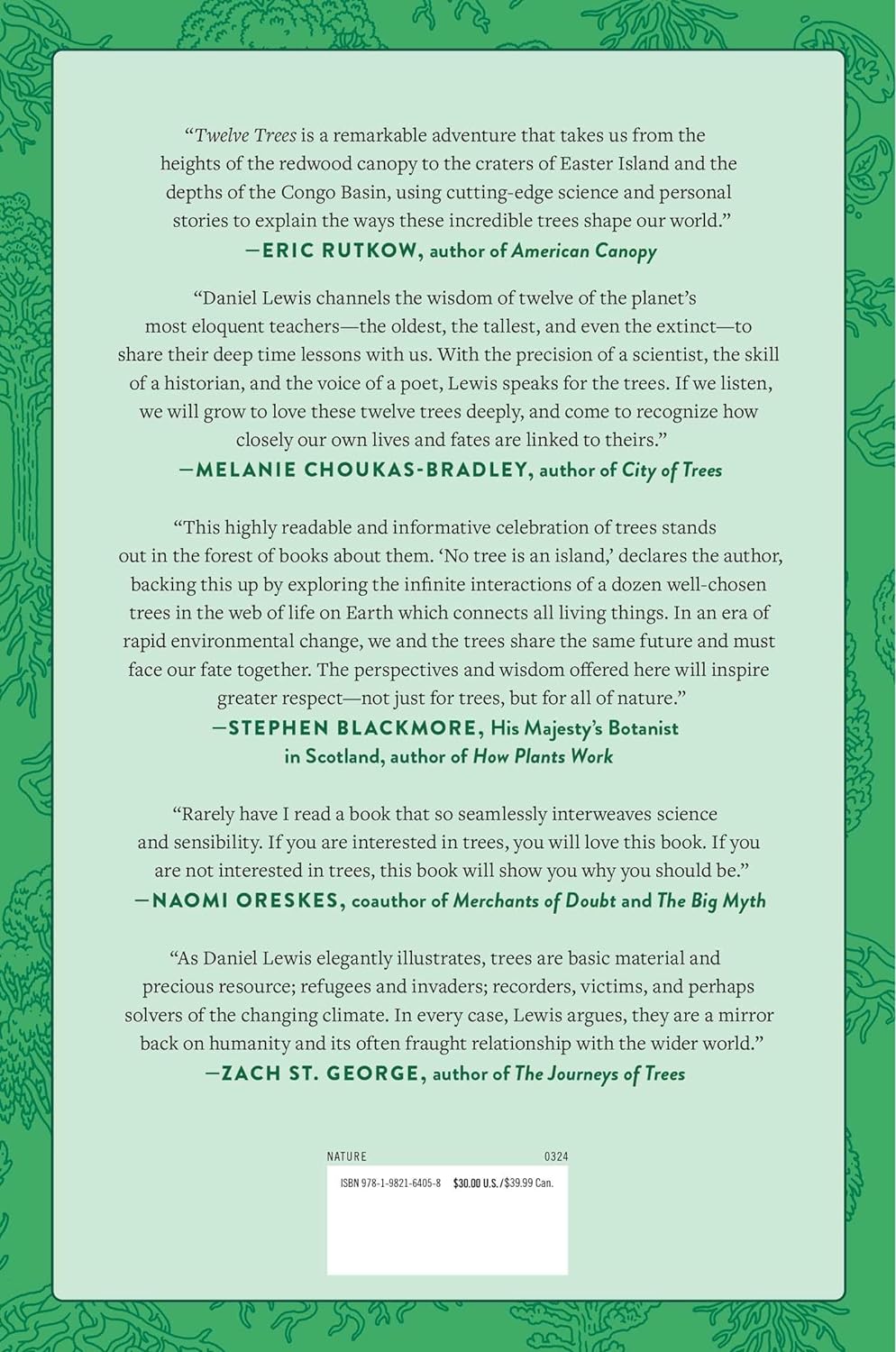Twelve Trees: The Deep Roots of Our Future
Twelve Trees: The Deep Roots of Our Future
Couldn't load pickup availability
by Daniel Lewis, 2024. Paperback, 304 pages.
A compelling global exploration of nature and survival as seen via a dozen species of trees that represent the challenges facing our planet, and the ways that scientists are working urgently to save our forests and our future.
The world today is undergoing the most rapid environmental transformation in human history—from climate change to deforestation. Scientists, ethnobotanists, indigenous peoples, and collectives of all kinds are closely studying trees and their biology to understand how and why trees function individually and collectively in the ways they do. In Twelve Trees, Daniel Lewis, curator and historian at one of the world’s most renowned research libraries, travels the world to learn about these trees in their habitats.
Lewis takes us on a sweeping journey to plant breeding labs, botanical gardens, research facilities, deep inside museum collections, to the tops of tall trees, underwater, and around the Earth, journeying into the deserts of the American west and the deep jungles of Peru, to offer a globe-spanning perspective on the crucial impact trees have on our entire planet. When a once-common tree goes extinct in the wild but survives in a botanical garden, what happens next? How can scientists reconstruct lost genomes and habitats? How does a tree store thousands of gallons of water, or offer up perfectly preserved insects from millions of years ago, or root itself in muddy swamps and remain standing? How does a 5,000-year-old tree manage to live, and what can we learn from it? And how can science account for the survival of one species at the expense of others? To study the science of trees is to study not just the present, but the story of the world, its past, and its future.
Note—species include: The Lost Tree of Easter Island (Sophora toromiro), coast redwood (Sequoia sempervirens), Hymenaea protera (a fossil tree), Longleaf pine (Pinus palustris), East Indian sandalwood (Santanum album), Bristlecone pine (Pinus longaeva), West African ebony (Diospyros crassiflora), Tasmanian blue gum eucalyptus (Eucalyptus globulus), Olive tree (Olea europaea), Baobab (Adansonia digitata), kapok tree (Ceiba pentandra), and bald cypress (Taxodium distichum).
About the Author
A native of Hawaii, Daniel Lewis now lives and works full-time in Southern California as the Dibner Senior Curator for the History of Science and Technology at the Huntington Library. With a Ph.D. in History from the University of California at Riverside and post-doctoral appointments at Oxford University and the Smithsonian, he currently serves on the faculty at Caltech, where he lectures on Environmental History.
Share



